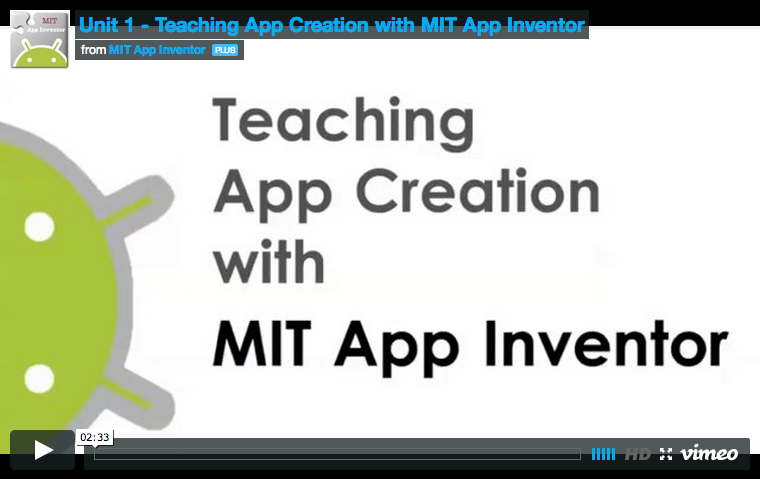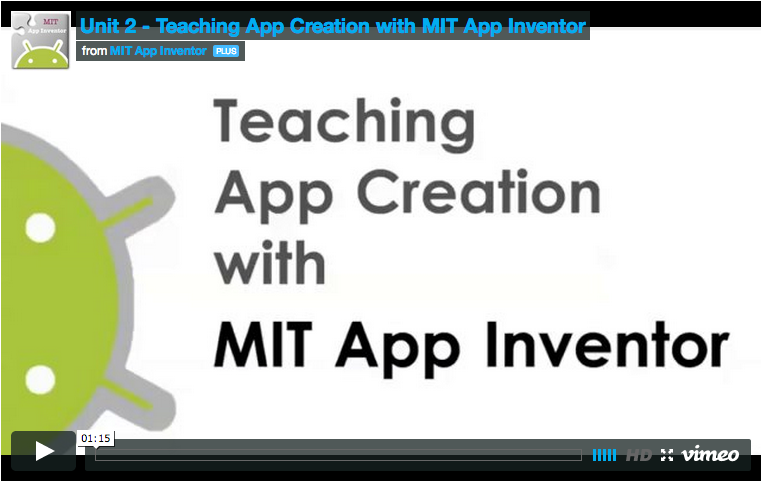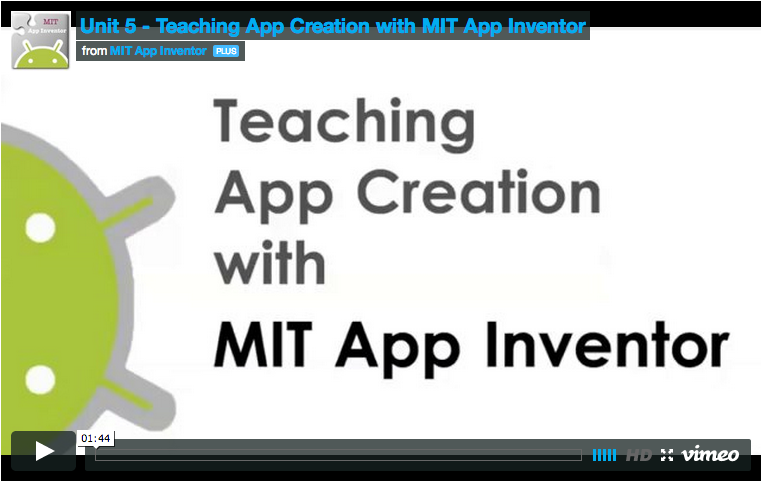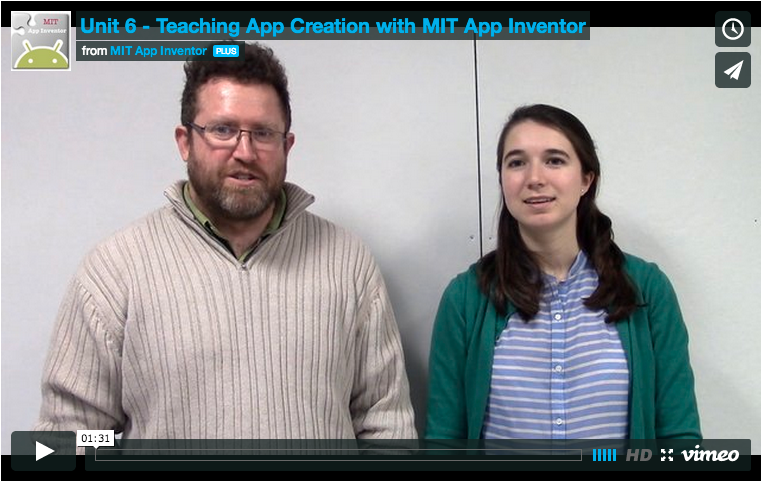Teaching App Creation With MIT App Inventor
Important Documents, Links, & Information
Brought to you by the:

Course Syllabus - Details on the course design. (opens in a new tab)
App Inventor Programming Troubleshooting FAQ - Having trouble with any part of App Inventor itself? Try checking for solutions here. (opens in a new tab)
MIT App Inventor Forum - Still can't find a solution to your problem, or want to connect to the larger MIT App Inventor community: Try the forum. (opens in a new tab)
Unit 1
Begin learning about the design process through an introduction to design and concept development.
Introduces App Inventor and what you can do with it, how to set it up and connect on your machine & device(s), how to build, edit, and share an app, and what Events based programming is.
Explore the differences between constructivism and constructionism, as well as between problem-based and project-based learning
Unit 2
Learn about the importance of needfinding.
Discover the programming concepts of conditionals, lists, iteration and how to use this information while building apps.
Think about your comfort in teaching with technology as well as your comfort with failure. Further, think about how to infuse computing throughout the curriculum.
Unit 3
Learn about and begin to work with prototyping.
Introduces to the programming concepts of procedures, variables, randomness, and basic algorithms as seen in apps. Additionally, covers different types and component properties.
What's a co-learner, anyway? How can a teacher be a co-learner with students? What are some indicators you can use to evaluate your own teaching in a digital age?
Unit 4
Go over the process of choosing a design and concept to use for your product.
Review and reinforce the programming concepts covered in the past two units, especially data and types. Also introduces the idea of persistence and how to use the TinyDB and TinyWebDB components.
Aligning computing to the Common Core standards, and building a Personal Learning Network (PLN).
Unit 5
Examine the ideas of user testing and user feedback.
Introduces APIs and how to use resources from the Web in an app, storing data in Fusion Tables, and making apps with multiple screens.
And Now for Something Completely Different - Tips on Teaching in a Classroom with Computers
Unit 6
Covers usability and the principles of good design.
Introduces the ActivityStarter component and how to design visually appealing apps in App Inventor.
Coding and Computer Science and Computational Thinking - Oh My!






